Hey Rosetta!
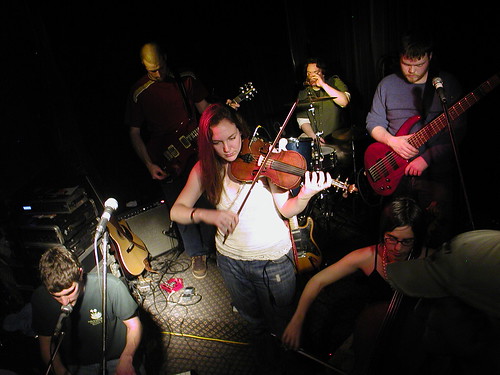
Momentum keeps building for Hey Rosetta!, one of the most talented bands on Canada's independent music scene. With a solid run on the national campus charts, critical praise across the board and a successful album release and tour in tow, Hey Rosetta! were honoured again with the prize for Best Album at the 2008 XM Verge Awards in Toronto.
After they rock POP Montreal, the band are heading down to New York for CMJ and then setting out on a series of consecutive tours across Canada with Stars, Two Hours Traffic, and Hawksley Workman this fall.
Riding on the waves of their acclaimed live show and 2007's "Plan Your Escape" EP, Hey Rosetta! surge forward with "Into Your Lungs (and around in your heart and on through your blood)".
Based in St. John's, NL, the six-piece group is comprised of Tim Baker (vocals/piano/guitar), Adam Hogan (guitar), Josh Ward (bass), Phil Maloney (drums), Kinley Dowling (violin), and Romesh Thavanathan (cello).
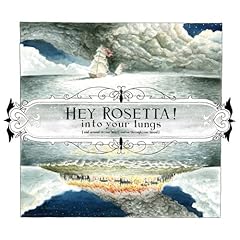 Recorded in the dead of winter in two East Coast harbour towns with producer and singer-songwriter Hawksley Workman, "Into Your Lungs" began with a beautiful naivety and confidence. An "off the stage" feel and vigor reminiscent of the bands powerful live performances rooted the recording sessions and everything was bred from and expanded from there. Conceptually, the new record is a shift from Tim's earlier compositions often written in isolation within his bedroom, to a new depth and space that comes from experiencing life on the road as a touring band. The new record packs more grit while allowing the bands infectious energy and vulnerability to flow freely. Highly Recommended!
Recorded in the dead of winter in two East Coast harbour towns with producer and singer-songwriter Hawksley Workman, "Into Your Lungs" began with a beautiful naivety and confidence. An "off the stage" feel and vigor reminiscent of the bands powerful live performances rooted the recording sessions and everything was bred from and expanded from there. Conceptually, the new record is a shift from Tim's earlier compositions often written in isolation within his bedroom, to a new depth and space that comes from experiencing life on the road as a touring band. The new record packs more grit while allowing the bands infectious energy and vulnerability to flow freely. Highly Recommended!Hey Rosetta! - New Goodbye
Hey Rosetta! - There's An Arc
Hey Rosetta! - I've Been Asleep For A Long Long Time
Hey Rosetta @ MySpace
Hey Rosetta! - Yes ! Yes! Yes!
Check Comments for Bonus!


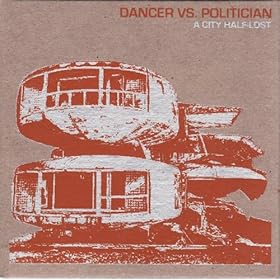 Produced by Matt Yelton (The Pixies, Frank Black), Andy Baker (The Glands, Azure Ray, Shannon Wright), and Sanni herself, the album
Produced by Matt Yelton (The Pixies, Frank Black), Andy Baker (The Glands, Azure Ray, Shannon Wright), and Sanni herself, the album 
 The album tells tales of greedy explorers, lost faith in love, corruption, and peace of mind in the modern world. Musically the band have recently added vocals in to the mix transforming their epic swathes of sound into a new mature and confident beast.
The album tells tales of greedy explorers, lost faith in love, corruption, and peace of mind in the modern world. Musically the band have recently added vocals in to the mix transforming their epic swathes of sound into a new mature and confident beast.
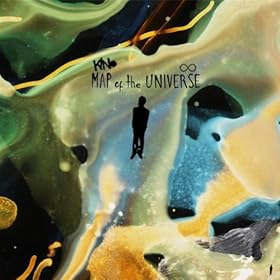 The fusion of cinema, music and literature through anarchism form the riches of KiNo's inspiration that accounts for the epic, extravagant and innovative stature of the Map of the Universe as an album. In this musical project, KiNo's collaborator is the highly respected sonic wizard/producer Jeff Blenkinsopp; the inventor of cutting-edge analog equipments. He has developed his unique production techniques while working with the world's leading artists over the years including; Pink Floyd, Hawkwind, The Clash, Kate Bush, T-Rex, Ian Dury and Vangelis among many others. The album features 11 songs written, performed and engineered by KiNo. He plays all instruments (except drums, percussions, and horns) and sings. Produced by Jeff Blenkinsopp & KiNo.
The fusion of cinema, music and literature through anarchism form the riches of KiNo's inspiration that accounts for the epic, extravagant and innovative stature of the Map of the Universe as an album. In this musical project, KiNo's collaborator is the highly respected sonic wizard/producer Jeff Blenkinsopp; the inventor of cutting-edge analog equipments. He has developed his unique production techniques while working with the world's leading artists over the years including; Pink Floyd, Hawkwind, The Clash, Kate Bush, T-Rex, Ian Dury and Vangelis among many others. The album features 11 songs written, performed and engineered by KiNo. He plays all instruments (except drums, percussions, and horns) and sings. Produced by Jeff Blenkinsopp & KiNo.
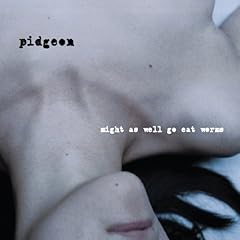 The emotional evolution captured in “Might As Well Go Eat Worms” is revealing of Pidgeon’s musical evolution over the past four years. Buoyed by the brilliancy of engineer, Aaron Prellwitz, (Death Cab, The Mountain Goats, Sun Kil Moon, Deerhoof), the band ascends to new heights. Micah’s screams are like hooked blades, drawing you in only to leave you eviscerated. Val’s voice conveys a confidence and depth only hinted at before. The contrast between Micah and Val’s vocals remains Pidgeon’s strongest dynamic ploy, but the band’s overall sound rages with more breadth, more weight, and more ferocity. Still a half-starved, rabid animal, but a more cunning, heavily-armed, half-starved rabid animal. Don't turn your back on them. They will kill you.
The emotional evolution captured in “Might As Well Go Eat Worms” is revealing of Pidgeon’s musical evolution over the past four years. Buoyed by the brilliancy of engineer, Aaron Prellwitz, (Death Cab, The Mountain Goats, Sun Kil Moon, Deerhoof), the band ascends to new heights. Micah’s screams are like hooked blades, drawing you in only to leave you eviscerated. Val’s voice conveys a confidence and depth only hinted at before. The contrast between Micah and Val’s vocals remains Pidgeon’s strongest dynamic ploy, but the band’s overall sound rages with more breadth, more weight, and more ferocity. Still a half-starved, rabid animal, but a more cunning, heavily-armed, half-starved rabid animal. Don't turn your back on them. They will kill you. 
 >” When we started playing live in late 2006, we didn't really have a niche. We played with a lot of local bands, but there wasn't a lot of chemistry at times,” explains Allison “We started playing shows with out of town bands (The Videohippos, The SadCobras) a couple months later and realized that we were all pretty like minded folks. We've all networked a little now, and we’re part of a community that sort of spans up and down the East Coast. We're all friends of friends of friends and fans of each other's music The internet has sort of fueled a new weird music revolution that's happening right now.”
>” When we started playing live in late 2006, we didn't really have a niche. We played with a lot of local bands, but there wasn't a lot of chemistry at times,” explains Allison “We started playing shows with out of town bands (The Videohippos, The SadCobras) a couple months later and realized that we were all pretty like minded folks. We've all networked a little now, and we’re part of a community that sort of spans up and down the East Coast. We're all friends of friends of friends and fans of each other's music The internet has sort of fueled a new weird music revolution that's happening right now.” The quartet known as
The quartet known as  In fall 2008 Mumpsy will be touring to promote their new full-length LP “Cat & Canary.” This highly anticipated treasure will be the band’s third album. It is to be released nationally by Post*Records in October 2008.
In fall 2008 Mumpsy will be touring to promote their new full-length LP “Cat & Canary.” This highly anticipated treasure will be the band’s third album. It is to be released nationally by Post*Records in October 2008. 